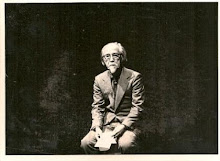



When Walsh started out New York was still the hub of the film industry and he made money by starring in several Westerns for a small production company in New Jersey. Eventually Walsh made the move to California and became an assistant director to D.W. Griffith. Walsh's apprenticeship to Griffith taught him how to utilize film's then untapped potential to tell epic stories about ordinary people. When Griffith's The Birth of a Nation went into production not only did Walsh serve as assistant director, but he also played John Wilkes Booth.



After the completion of Griffith's film, Raoul Walsh took crew and equipment back to New York and started production on Regeneration. The script was adapted from a play that was itself based on a book, the gangster autobiography of Owen Kildare.
The film is considered the first feature length gangster movie. Yet the gangsters in the movie are not the flashy well-groomed characters that are now commonplace in articles, movies, and television shows. The gangsters in this film are neighborhood toughs. Their days aren't consumed though by street fights and turf battles, but rather on the relief of boredom. Several scenes within the film consist of characters just drinking beer, enjoying a cigarette, or standing on a street corner. There is nothing about the gangster lifestyle portrayed in this film that a contemporary movie audience would consider as exciting.




As a student of Griffith's the film cares more about the social circumstances that create the type of desperation that turns boys into crooks. Walsh does not clean up the urban squalor. The muck and grime of the streets is a very tangible reality. Even the casting is authentic; most of the extras were real locals from the Bowery area as well as from Hell's Kitchen. Gangsters in this film come in all shapes, sizes, and defects.
Another technique that Walsh borrowed from Griffith was the use of cross-cutting. By taking two separate events occurring at the same time and selectively ordering the shots in a specific way a director could invariably break the barrier between time and space, construct their own timeline, and have a more assured control over the pace and rhythm of their film.



The title of the film speaks to the protagonist of the story, Owen Conway, and his transition from street thug to functional member of society. Walsh establishes at the start of the film that Owen is a victim of tenement living; after his parents die he practically becomes a slave to an old couple. He survives by using his fists and although hardened by the callousness of the streets there is a tiny part of him that believes something better is out there. That thing for Owen comes in the form of Marie Deering, his Mamie Rose. Marie is a social worker and unlike many later women characters in a Walsh film she embodies sincere proper goodness. Her love for Owen is what redeems him at the end.




Although the film has been relegated as an artifact of the 1910's a careful look at it will surprise many with just how contemporary this story is; and in some ways this film is more daring than the typical gangster stories that we see now. This movie does not look away from the denizens of the street. While many directors may try to create a reality that they believe an audience might find palatable, Raoul Walsh was confident that what was already in front of his camera was all he needed to tell his story.




No comments:
Post a Comment